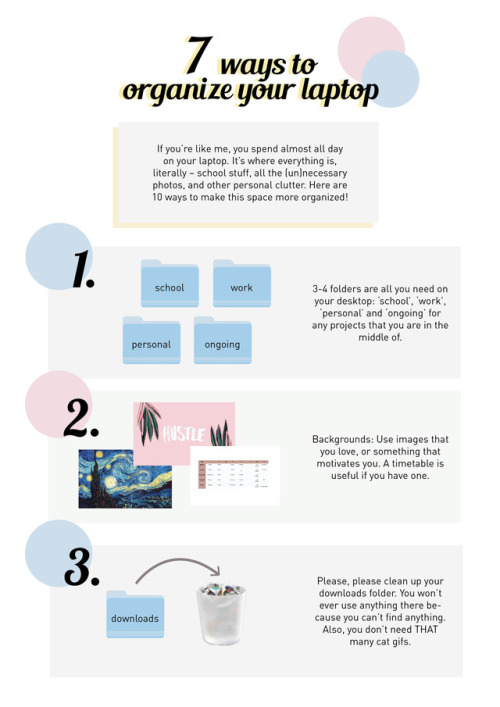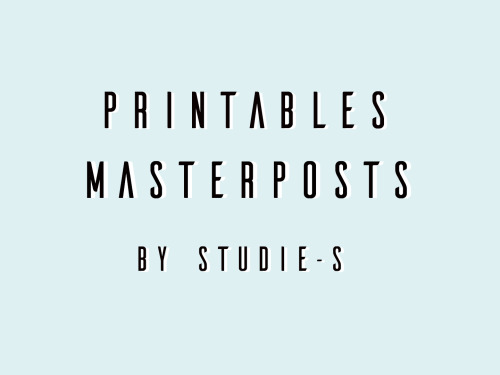I Know That Starting Bujo Can Be A Daunting Process, Speaking From Personal Experience. As Such, I Have

I know that starting bujo can be a daunting process, speaking from personal experience. As such, I have compiled a list of resources down below to help beginners to start bujo.
Guide
Starting a bullet journal
A guide to bullet journal
Guide to bullet journal
Starting a bullet journal
Bullet journal
How I bullet journal
Notebooks brand
Essentials A5 grid journal (example)
Rhodia webnotebook (example)
Scribbles that matter pro dotted a5 journal
Moleskine large hardcover journal (example)
Moleskine classic journal (example)
Moleskine large square ruled (example)
Leuchtturm1917 dotted a5
Bujo spread ideas
Bujo spread ideas
Bujo spread ideas
Bujo ideas masterpost by @optomstudies
Its ok if you are not an artistic studyblr by @tiyastudies
Bullet journal ideas
Youtube videos
How to bullet journal
Bullet journal setup 2018
Bullet journal tips for beginners
Bullet journal flip-through and tips and tricks
How I use bullet journal (updated version)
Plan with me 2018 setup
Hello, 2018!//january bujo pwm
My 2017 flip-through
My 2017 bujo flip-through
2017 bujo flip-through
Printables
Space tapes
Fall stickers and vocabulary worksheets
Christmas tapes
Super random sticker sheet
Inspirational spreads
Overview
Daily spread
Weekly spread
Weekly spread
Weekly spread
Weekly spread
Weekly spread
Weekly spread
Weekly spread
Weekly spread
Weekly spread
Weekly spread
Weekly spread
Weekly spread
Weekly spread
Weekly spread
Monthly spread
Monthly spread
Monthly spread
Monthly spread
Monthly spread
Yearly spread
Other spreads
Favourite films
Moodboard
Clothing spread
Gratitude spread
School year checklist
Places to travel
1 sentence a day
Reflection and looking forward
Year in pixels
Doodle ideas
Highlights
Last replaced
Videos, habits and finance tracker
Things that make me happy and dreams
Room tidying
Movie journal
Lookbook page
Bucketlist
Travel journal spread
Summer daze (good things)
How to make your bujo aesthetic?
How to banner by @studypetals
Easy doodles
Header ideas
Gradient titles effect tutorial
Faves
@studyrose @studywithinspo @studyquill @stillstudies @tbhstudying @journalsanctuary @crescentwords @doestudies @soymilkstudie @kaylareads @studylustre @hannybstudies @peachystudy @minijournals @somestudy @oikawastudies @studeying @lentilstudies @tomi-letters @emmastudies @smoinerd @mochi-studies @focusign @bluelahe @mildlineurs @cayliestudies @thearialligraphyproject @lycheestudy @hwangmyeons @quadrtics
Other masterposts made by me
Printables
Self care
College
Ace your exams
Apps for students
Note taking
The amazon products links are affiliate links. That means I do earn a small commission. This does not influence my opinions of the products in any way. However, if you are strongly against affiliate links, feel free to search up the products yourself.
Icon credit to @jasperstudies
More Posts from Zoel1212 and Others
back to school
i know, i know, i’m a little bit early. it’s all good, i have anxiety, i plan ahead constantly. i figured i’d share some of my plans to prepare myself for heading back to school.
1. fix your sleep schedule
for school i wake up at 6:30, in the summer i wake up at 12. and recently i decided to fuck that up even more by pulling an all-nighter and just, in general, screwing up my sleep schedule. i’ll need about a month to fix all this damage, but in general, you should start reacquainting yourself with your school schedule about two weeks before you have to head back.
2. figure out your note keeping system
i’m switching things up this year, and i won’t be using the binder system i’ve had all throughout high school. it’s simply to heavy for my walk to and from school. instead, i’ll be using a filing folder, and keeping loose leaf paper, as well as the week’s lessons in there, and once the week is over, i’ll transfer my notes to the binder system at home, which should limit the weight i carry. also, this’ll force me to have better organization, and hopefully make weekly review easier. just as a rule of thumb, refreshing your note keeping system is something you should do annually, at the start of a new year or even before a new semester; you know what’s been working and what hasn’t been.
3. gather breakfast ideas
i have about ten minutes scheduled in my morning routine during the school year for breakfast. and about five of those minutes are spent figuring out what to eat. i want to gather simple breakfast ideas that i can test out now, so i don’t waste time deciding what to eat. this just, in general, makes mornings less of a hassle and can help make sure you’re getting a good start to the day.
4. take stock of your supplies
i need a lunchbag and highlighters, my previous ones are no longer able to function, so i need to replace them. i don’t, however, need new pencils, i have plenty. doing an inventory check can really help prevent buying duplicates of something you thought you didn’t have.
5. create achievable goals
this year is my final year of high school, and then i’m off to university, most of my goals centre around applications and just graduating. but there are other things i know i need to do. embracing study habits for one. i’m hoping to do so by staying in the library after school instead of walking home right away because i know i can’t get work done as effectively at home. i’ll also be doing a review for exams all throughout the year, instead of the day before, by creating flashcards and mindmaps for each days lesson. set a general goal, then add the steps you’ll need to take to achieve it.
6. check your courses
i’m dropping out of physics because i don’t need to be taking it and it will give me a spare instead of a full course load. i need to talk to my guidance counsellor before school starts because of it. as well, i like to make sure i’m in the correct classes and that my schedule is as balanced as possible. some schools may not allow this for regular students, mine does. make sure you’re taking what you need to take and what will allow you to succeed.
7. put dates in your planner
my school offers a tentative list of events going on through the year, with set exam and break times. i like to keep track of these, and setting them in my planner makes it easier to see how my year will play out. if your school doesn’t offer this, check out past years scheduling so that you have a general feel for how your year will go.
these are just some of the things i’m doing to ensure this year goes smoothly for me. let me know what y’all are doing too!

hey guys !! this is my first masterpost hahaha exciting so exams are coming up soon (for me), aka those early may dates.. here is just a bunch of resources that i found !!
study tips 101
i have terrible memory! how do i study? by @estudying
conquering procrastination by @studybudyblr
how to stay focused, motivated, and on track by @briellestudies
how to study for math by @enfpfocustudyblr (making a math masterpost soon)
focus and motivation by @katsdesk
study methods by @heystudy
“the oh god it’s the night before the exam” by @renaistudying
another test is tomorrow by @getstudyblr
stress help by @highschoolering
101 study tips by @study-early
6 things people don’t tell you about studying by @behindonstudying
ap testing tips by @katsdesk
3 steps in studying by @milkystudies
studying from ..
how to study from textbooks by @strive-for-da-best
four steps to reading textbooks by @kimberlystudies
lecture notes by @strive-for-da-best
revision notes by @raistudy
how to: flashcards by @pseudocodead
more flashcards by @studydiaryofamedstudent
how do i study ?? / being organized
study schedule by @mindofamedstudent
pomodoro printable by @cmpsbls
printables masterpost by @studie-s
vocab and formulas printables by @studeyh
how to maintain good notes by @skeletonstudy
typing notes by @study-well
colorcoding by @kimberlystudies
highlighting by @studygene
highlighting pt 2 by @ayetstudies
how to use sticky notes by @etudiance
organized study spaces by @etudiance
sketches for notes by @staedtlers-and-stabilos
how to revise by @youaretheairinmyalveoli
if any of these links are broken, please message me so i can update it. hope you find these helpful !!
- xoxo j
Keep reading


Excuse me wtf
World Building Tips: Empires and Power Structures
World building is important in any setting. There are places, such as fantasy literature where it can become the difference between a believable world and an unbelievable one. Suspension of disbelief is often a critical part to stories.
Many fantasy books take place during times of war, or revolution or even a fall of a corrupt empire. I love reading these sorts of stories, as many people do. Power structures can be complex. They can be used to create tension and drama between characters - take for instance the hero versus the corrupt government troupe in fiction such as The Hunger Games, Harry Potter or even more traditional fantasies such as Tigana ( by Guy Gavriel Kay) or The Wheel of Time series (by Robert Jordan). As a reader it can be compelling to follow these stories. For writers though, it can seem daunting to go into the details of shaping a believable power structure. Here are some basic tips for creating one.
There are four crucial factors to any power structure. These are as follows:

1. Military - this includes the size of the army, the types of technology used (guns or swords? navy or land army?), the basic structure of the army (is it highly regimented like the Romans? What are the different groups within the army? How are they divided - by technology, skills or social status?). Another important question here is why has the military developed in this way? The Roman military, for example, grew out of competition with other Italian states. The opposition is equally important here - who were/are they within your story? Apply the above questions just as much to them, because empires and other structures are influenced by the world around them. The military can be the reason an empire begins in the first place. The military should also play a role in sustaining the power structure/empire. It doesn’t have to be the strongest factor by any means. It may even become the downfall of the structure in the end.

2. Economy - How is your power structure or empire funded? Does this change over time? Does your empire take part in internal or external trade? Is trade important to the running of the empire? Resources such as crops, fertile land or people are also a part of this and influences the larger actions (such as conquest) your structure takes towards other countries. Trade can be a form of control and influence as well, even outside of the structure’s territory. In terms of story, a lot of decisions that are made involve trade or economic reasons - no one wants to get on the wrong side of someone who controls valuable resources or trade with other entities. The British Empire was based mainly on trade and this insured a global influence even as it declined in actual power.

3. Administration: The system of government and the way it manages itself is important to know. Is it a traditional monarchy or a democracy? How is leadership decided? How is power delegated throughout the larger administration? Hierarchy? One person can’t do or know everything. In terms of empire and conquest this is equally important. Does the empire recruit the local elites from conquered areas to administer to the general public, like the Romans? If your story is set in the outskirts of your empire, this could effect the outcome of the story - local elites might enjoy the power they have gained through an alliance with the larger empire and thus be unwilling to revolt against it. What other ways does your power structure control its territory? Does it use culture, or a set language to spread out into new territory? What kind of empire is your empire? Is it land based (only conquering territories linked by land) or maritime (navy focused with overseas territory)?

4. Culture: How does your power structure interact with its subjects? Even in a small area, different ethnic groups exist, so what unites all of them together? Are they all united, or is there groups of people the power structure leaves out? Have they always been left out deliberately or have these groups formed over time?How does the the government and the people from inside the empire view outsiders and their culture? Does this influence your story or characters? Do negative stereotypes or different language create a barrier between your character and others? In newly conquered areas is the empire’s language, laws and social ideals endorsed to locals or is it forced upon them? Is religion important to how the empire works or interacts? For example, before war do the gods need to show approval for the empire’s commanders? What about clashes of religion with other areas? Where do cultures intersect? Is your empire influenced by an older power or a hard past? What is seen as integral to your structure’s culture - art, literature, music etc? Are allies connected with your structure through culture, a shared distant history?
Most power structures rely on all of these factors - but none are ever equal in importance. Your government will identify one or two of these areas as important and focus on them. This can impact how the structure comes together and eventually falls apart - the greatest strength becomes a weakness, or something is overlooked until it is too late.
This is a long post - so I’m going to leave it here for now. If you guys have any questions, feel free to use the Ask feature to contact me.
So helpful! Thank you! 💖💖💖

Hey guys, so I’m nearing the end of my senior year, and it’s been great so far! I accomplished my academic tasks efficiently and didn’t burn myself out, and I think the main contributor to my success as a student is my organization system. This system has been refined throughout my high school years, but I think now I’ve finally found the most effective methods.
Please remember that this isn’t the only organization system you can adopt; this is just the one that works the best for me, and I hope that by sharing it with you, you’ll gain a new perspective on how to stay organized as a high school student.

The first thing I wanna talk about is my notebook system, which I briefly mentioned in my Guide to Note-Taking.
My notebook system comprises three types of notebooks: the Everything Notebook, the subject notebook, and the revision notebook.


The Everything Notebook
The first stage is in-class notes. I only bring one notebook to school every day. I call it my Everything Notebook, and this is where I write down all of the notes I take in class. This way, I don’t have to lug around six notebooks where I’m only going to use a few pages in each of them that day.


Subject Notebooks
At the end of the day, I would revise my notes and compare them to the syllabus so I know where we are in the learning process. I would then transfer my class notes from my Everything Notebook to my different subject notebooks. This is stage two. I also start to jazz up my notes because I use the notes in my subject notebooks to study for tests.
In addition to my class notes, I include material from my teachers’ notes that they might not have elaborated on, as well as points in the syllabus (I’m currently taking A2) that were only glazed over briefly, or not at all, in some cases. (Note: this does not mean they completely skip a chapter or topic; it’s more like they missed a few bullet points that should be in my notes but aren’t. An example would be if we’re learning about phenol reactions and the teacher forgot to mention the use of FeCl3 as a test for phenol.)

Revision Notebooks
Stage three comes a little later, when exam week is just around the corner. Essentially, I rewrite and improve my notes from my five different subject notebooks into a single revision notebook or binder. (Recently, I’ve opted for a revision notebook because they’re lighter and easier to carry around.)

Because my teachers don’t always teach in the order of the syllabus, the first thing I do is organize my notes according to the syllabus. I would then fill in any other missing gaps in the material that hadn’t been filled in stage two.

When compiling material for my revision notebook, I use as many sources as possible: my own notes, my teachers’ notes, youtube videos, online sites, and my favorite, the mark scheme! I add in some answers from past papers (explanations only, so no calculations) mainly to secure marks. It’s safer to memorize definitions straight from the mark scheme than from the textbook or from handouts. I also do this to ease my memorization, especially for topics that require lengthy explanations. It’s a lot easier to remember the 6 points I need to explain the principles of NMRI than to remember everything in the four-page handout my teacher gave me.

Folders and binders are essential to organizing your papers. Some people keep a single accordion folder for all their papers, but for me it’s just too heavy to carry around all the time. The same goes for subject folders that are brought to school every day.
Instead, my binder/folder system comprises my Everything Folder and my subject binders.

The Everything Folder
The folder I carry with me to school every day is this A4 folder I got from Tokyu Hands. It has 5 pockets, one for each day of the week, so all the papers I receive on Monday will go behind the first divider, and so on.
Some people also keep blank papers in their folders; I don’t because my school has its own lined paper and graphing pads that I keep under my desk that I use if a teacher asks us to do an assignment on those papers. If I do work at home, I prefer to just use a plain A4 paper or a legal pad.

Subject Binders
At the end of the week, I’ll sort my papers into my subject binders. Sometimes I’ll keep some papers in the folder if I think I’ll be needing it the next week. This usually only applies to worksheets because all my teachers’ notes are available on Google Classroom, so I can access them even if I don’t physically have them.

Each of these binders have sections inside them:
Physics: 1 for handouts, notes, and tests, 1 for Paper 4 (Theory), 1 for Paper 5 (Practical Planning). I included extra tabs to mark the different topics in the handouts section.
Chemistry: same as Physics.
Economics: 1 for Paper 3 (MCQ), 1 for Paper 4 (Case Study and Essay). A lot of my Economics material is online, though.
English: 1 for Paper 3 (Text and Discourse analysis), and 2 for Paper 4 (Language Topics, which includes 1 for Child Language Acquisition, 1 for World Englishes). Past papers, handouts, and notes all go under their respective topics.
Mathematics: I just keep everything together because I never revise math and just constantly do past papers.
This makes it easier for me to revise each subject because I can just take one binder with me instead of a messy folder with everything just shoved in there.

I keep a magazine file for each of my A-Level subjects (English and Mathematics are combined). All my textbooks, revision guides, and subject notebooks are kept here, so if I need to revise one subject, that’s the magazine file I’ll take out.

These magazine files prevent any small things (like my book of flashcards) from being shoved to the back of my bookshelf, or materials from different subjects from getting mixed up.

In my senior year, I mostly plan using this app called Edo Agenda. It syncs across all my devices for free and has all the features I need: a to do list to organize tasks, monthly and weekly calendars to organize events, a journal to organize notes and memos.

I used to bullet journal regularly, but it takes too much time during weekdays, so now I just bullet journal for the therapeutic effects it gives me, and I use an app for organizing tasks and events. Sometimes at the end of each week, I’ll transfer my tasks to my bullet journal and then decorate the page, but again, this is just for its therapy.

Organizing your school supplies is just as important as organizing your papers and notes. With a more organized backpack and pencil case, you won’t waste time looking for your things at the bottom of an abyss.


Pencil Case
I don’t find it necessary to bring so much stationery to school unless I plan on making notes at school (usually during revision week).
Backpack
Because we’re already in the revision term, I don’t really carry a lot of things in my everyday backpack, just the following:
Pencil case
Everything Notebook
Everything Folder
Revision notebook
Kindle
Phone
Wallet
Earphones
Calculator
Speaker
Drinking bottle
A pouch with things like a hairbrush, pads, and lip balm
And that’s all for now! I hope this post will help you organize your school life (if you haven’t already) or at least provide some useful insights on some ways to stay organized as a high school student.
💞Back To School Glow Up💞
Alright y'all, with school season comin back, here are some prime hoe tips to get y'all ready to slay.
1. Develop a skincare regimen at least once daily: wash, exfoliate*, mask*, toner, essential oils, moisturize.
*once weekly, to avoid overshocking your skin.
2. Tea tree oil is bomb for acne and acne scars. Apply that shit.
3. Coconut oil and castor oil for brow/lash growth every night.
4. Go through your closet, and toss clothes you don’t wear. Invest in more neutral colors and fits to configure a wider variety of cute ass outfits.
5. Don’t be afraid to thrift shop; places like TJ Maxx and The Goodwill have bomb ass brands for cheap.
6. Get your books/supplies ready a week before. Prepare yourself.
7. Have all of your test dates/assignment due dates in your phone before classes start. Make sure to request off days of work the nights before major assignments and exams if you can help it.
8. Things to keep in a bag in your locker: pads/tampons, an extra pair of panties, a spare change of clothes & shoes(in case of a wardrobe malfunction), hairbrush and hairtie, nail file & clippers, makeup remover wipes, concealer, masacara, gum, water bottle, extra pens, some spare cash, phone charger, and earbuds.
9. Keep a water bottle in ya bag at all times. A hoes gotta be hydrated.
10. Keep up with ya studies (see my School and Studying Tips post for more details on how to boost that GPA)
11. A week before school starts, develop getting sleep schedule for school by going to bed half an hour earlier every night. This’ll make waking up earlier less of a hell, trust me.
12. Have a go-to makeup look for school that takes 30 mins or less as a default, if you beat your face in the morning.
13. Replace coffee with tea for a more healthy caffeine fix before class.
14. Prepare yourself a decent breakfast before you go to bed, so you can easily grab and go in the morning. Breakfast kickstarts your metabolism and decreases cravings throughout the day, and generally boosts your mood and brain power.
15. If you wear a uniform, make sure that shit is comfortable and actually fits you. Make sure nothing hangs off of you, cuts off circulation, itches, irritates, etc.
16. Need a break from studying? Work out. Burn some calories, clear your mind, and stimulate your brain with some exercise. Swear to god this keeps my grades up and my body lookin fly.
17. Invest in a hair mask (any pharmacy or makeup outlet will have them), or make one yourself. They make your hair super soft and shiny for flipping it when you walk past that group of girls who hate you lol
Thats all I can think of for now hoes, get good grades, I believe in all of y'all✨

Picture- helloemilie on Instagram Edit- Liel Naor


7 Ways to organize your laptop because we can always be a little more organized on our devices (including myself).
Cute.

MASTERPOSTS
studiying’s printable masterpost by @studiyng
planner printables by @studywithnerdyglasses
free printables masterpost by @chemistrynerd2020
daily planner + today … + weekly planner + 24/7 weekly planner + monthly planner + revision planner and etc by @theorganisedstudent
free 2016 calendar printables by @gracelearns
PAPER PRINTABLES
note taking outlines by @studygene
note outline printables by @studygene
TO DO LIST PRINTABLES
to do list and weekly agenda by @paperplanners
to do list by @thearialligraphyproject
weekly to do by @studeying
detailed weekly planner by @diehardstudyblr
20 printables to do do list
daily planner by @cmpsbls
daily planner by @arystudies
planner pack by @studysanity
assingnment overview / tracker printable by @studeying
goal getter printable BY @janicestudies
cute to-do list printable by @studeying
exam study pack + study planner by @ennui-for-me
study printable pack by @marialearns
2016 PLANNER PRINTABLES
planner 2016 printables by @plantstudies
2016 planner printables (with stickers) by @marias-studyblr
cute printable planner by @48jn
printables + stickers by @cmpsbls
free planner 2016 by @muna-mm-mi
monthly printables by @thearialligraphyproject
OTHERS
how to make printables by @cmpsbls
pomodoro printables by @cmpsbls
7 free budgeting worksheets
form new habits by @burymewithmyplanner
english printables by @meddiestudies
monthly budget template by @ahhnahsfinalyear
-
 calmnessisasuperpower reblogged this · 6 months ago
calmnessisasuperpower reblogged this · 6 months ago -
 calmnessisasuperpower liked this · 6 months ago
calmnessisasuperpower liked this · 6 months ago -
 phantomyao liked this · 8 months ago
phantomyao liked this · 8 months ago -
 florecilladecanela reblogged this · 9 months ago
florecilladecanela reblogged this · 9 months ago -
 sweetlikecandysblog liked this · 9 months ago
sweetlikecandysblog liked this · 9 months ago -
 florecilladecanela liked this · 9 months ago
florecilladecanela liked this · 9 months ago -
 burnt-to-ashes liked this · 1 year ago
burnt-to-ashes liked this · 1 year ago -
 againtodreaming liked this · 2 years ago
againtodreaming liked this · 2 years ago -
 butterfly152 reblogged this · 2 years ago
butterfly152 reblogged this · 2 years ago -
 jackalgirl-01 liked this · 2 years ago
jackalgirl-01 liked this · 2 years ago -
 hue4 liked this · 2 years ago
hue4 liked this · 2 years ago -
 aisforadventure1898 reblogged this · 2 years ago
aisforadventure1898 reblogged this · 2 years ago -
 lllchiccalll liked this · 2 years ago
lllchiccalll liked this · 2 years ago -
 dopesuitcasehumandiplomat liked this · 2 years ago
dopesuitcasehumandiplomat liked this · 2 years ago -
 pricklynotpeachy liked this · 3 years ago
pricklynotpeachy liked this · 3 years ago -
 lunastudy reblogged this · 3 years ago
lunastudy reblogged this · 3 years ago -
 randomperson281 liked this · 3 years ago
randomperson281 liked this · 3 years ago -
 peachblossomstudy liked this · 3 years ago
peachblossomstudy liked this · 3 years ago -
 perchancetobe reblogged this · 3 years ago
perchancetobe reblogged this · 3 years ago -
 perchancetoendure liked this · 3 years ago
perchancetoendure liked this · 3 years ago -
 mochierose liked this · 3 years ago
mochierose liked this · 3 years ago -
 studylope liked this · 3 years ago
studylope liked this · 3 years ago -
 small-town-student reblogged this · 3 years ago
small-town-student reblogged this · 3 years ago -
 small-town-student liked this · 3 years ago
small-town-student liked this · 3 years ago -
 naturesoul liked this · 3 years ago
naturesoul liked this · 3 years ago -
 finding-an-angle liked this · 3 years ago
finding-an-angle liked this · 3 years ago -
 adelinestudiess reblogged this · 3 years ago
adelinestudiess reblogged this · 3 years ago -
 adopted-crown-princess-of-hell liked this · 3 years ago
adopted-crown-princess-of-hell liked this · 3 years ago -
 idontknowwhattocallmeself-blog liked this · 3 years ago
idontknowwhattocallmeself-blog liked this · 3 years ago
